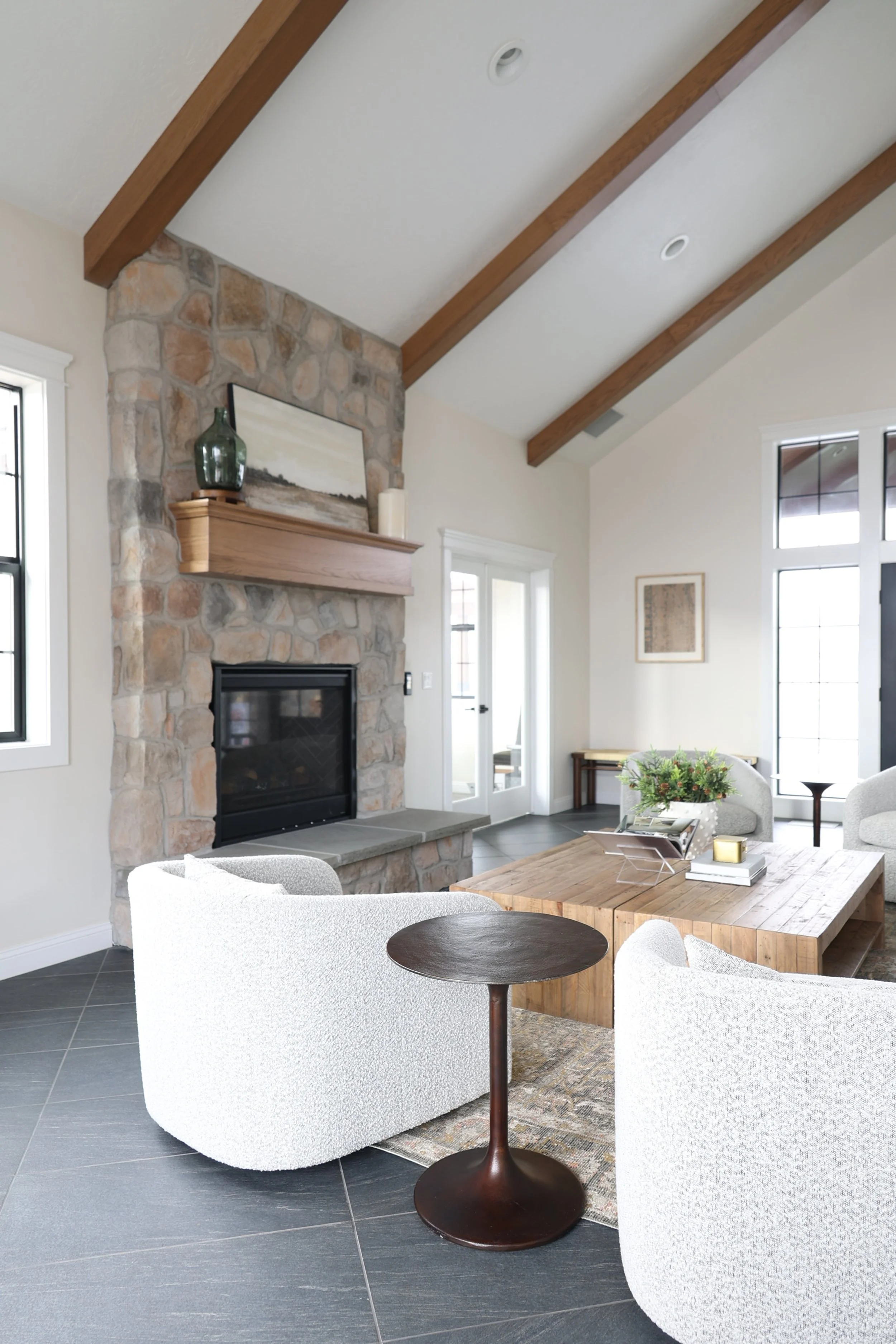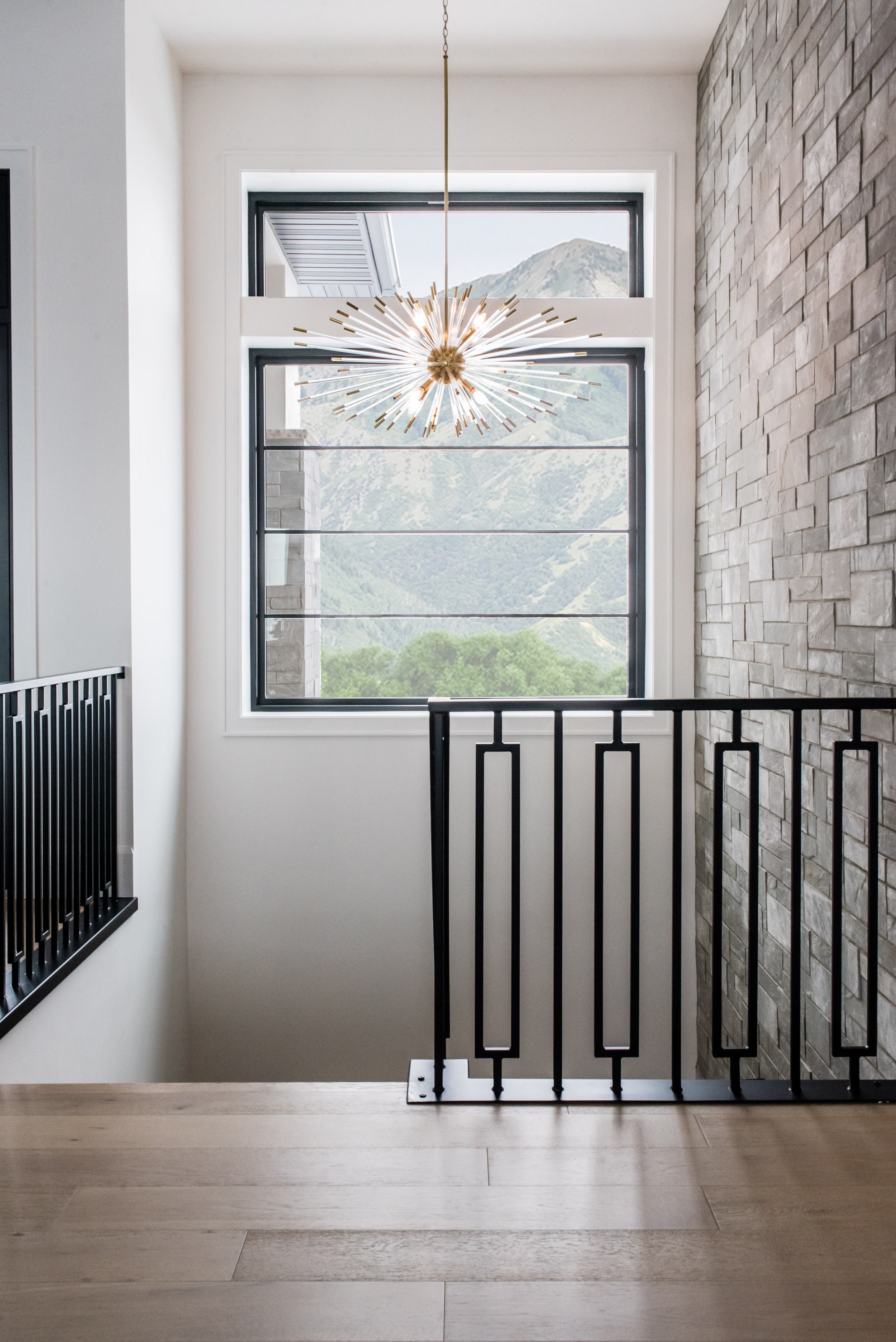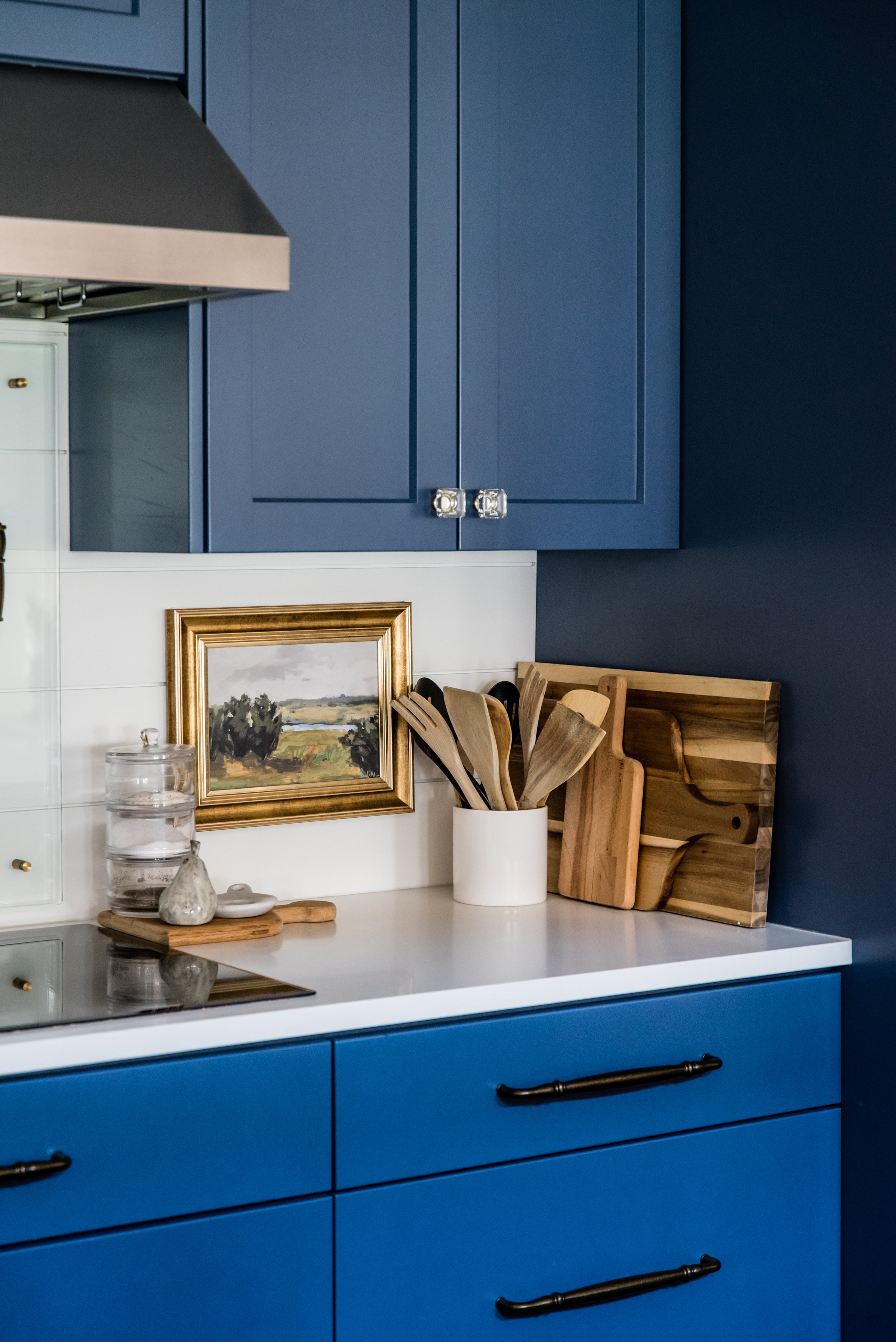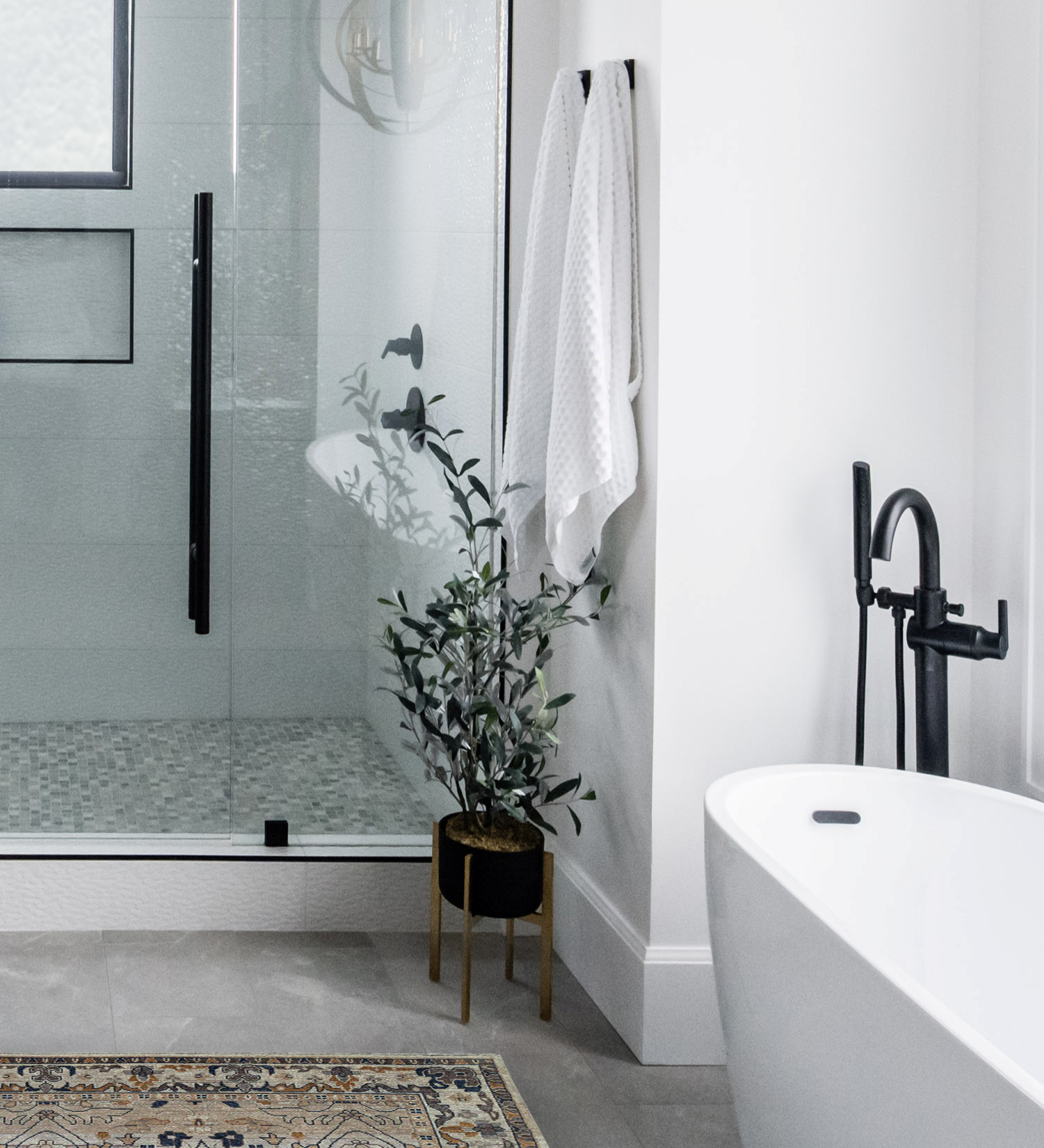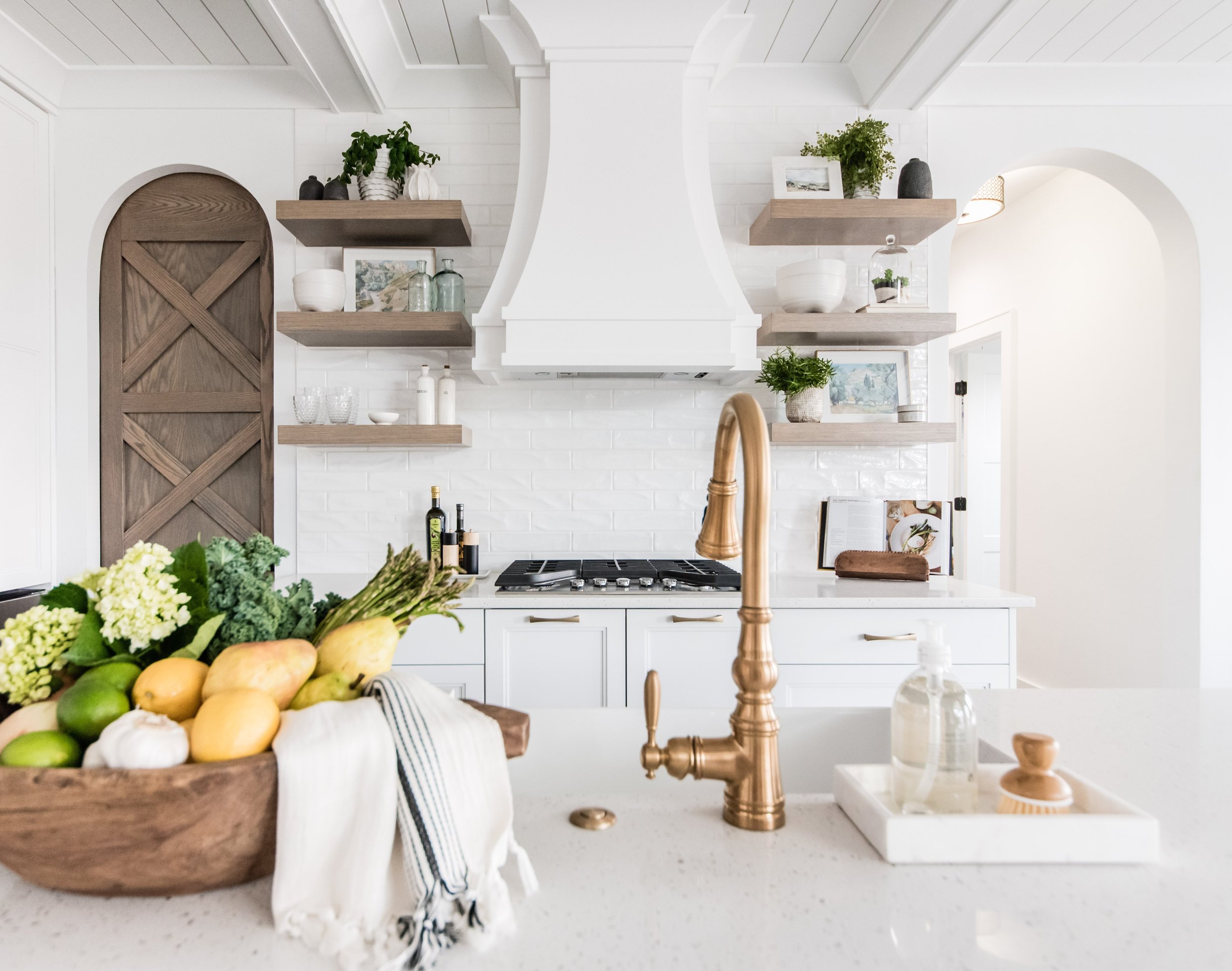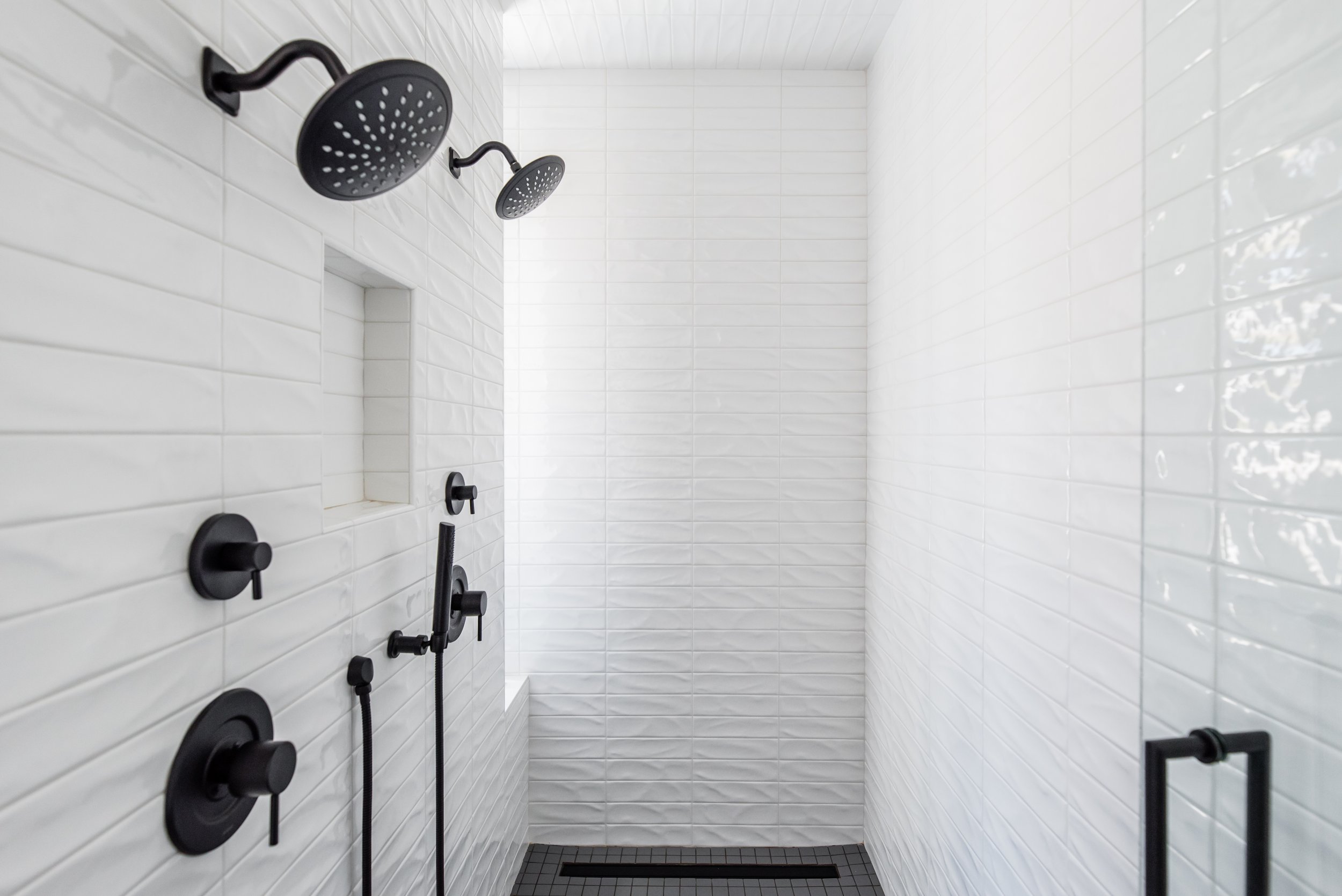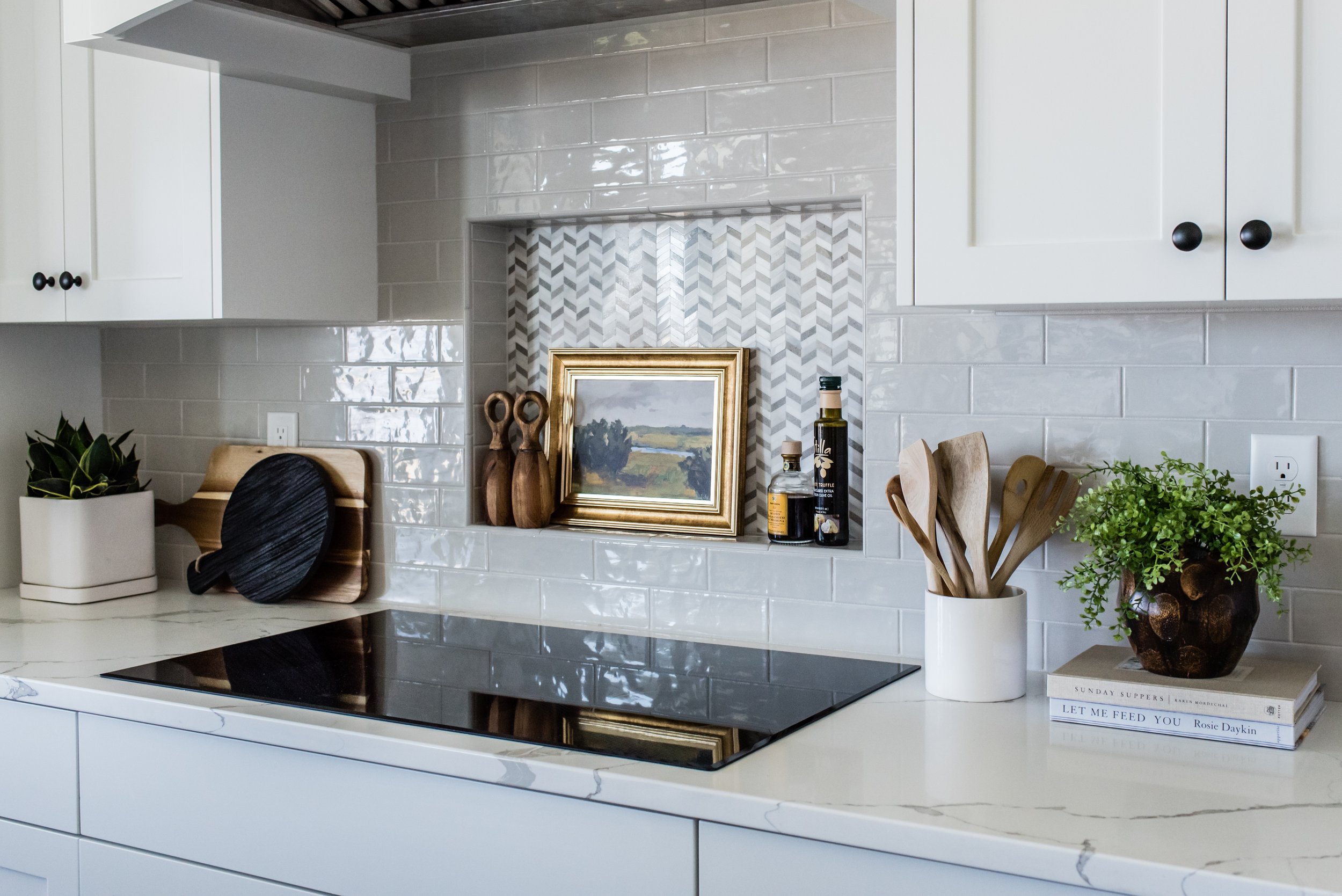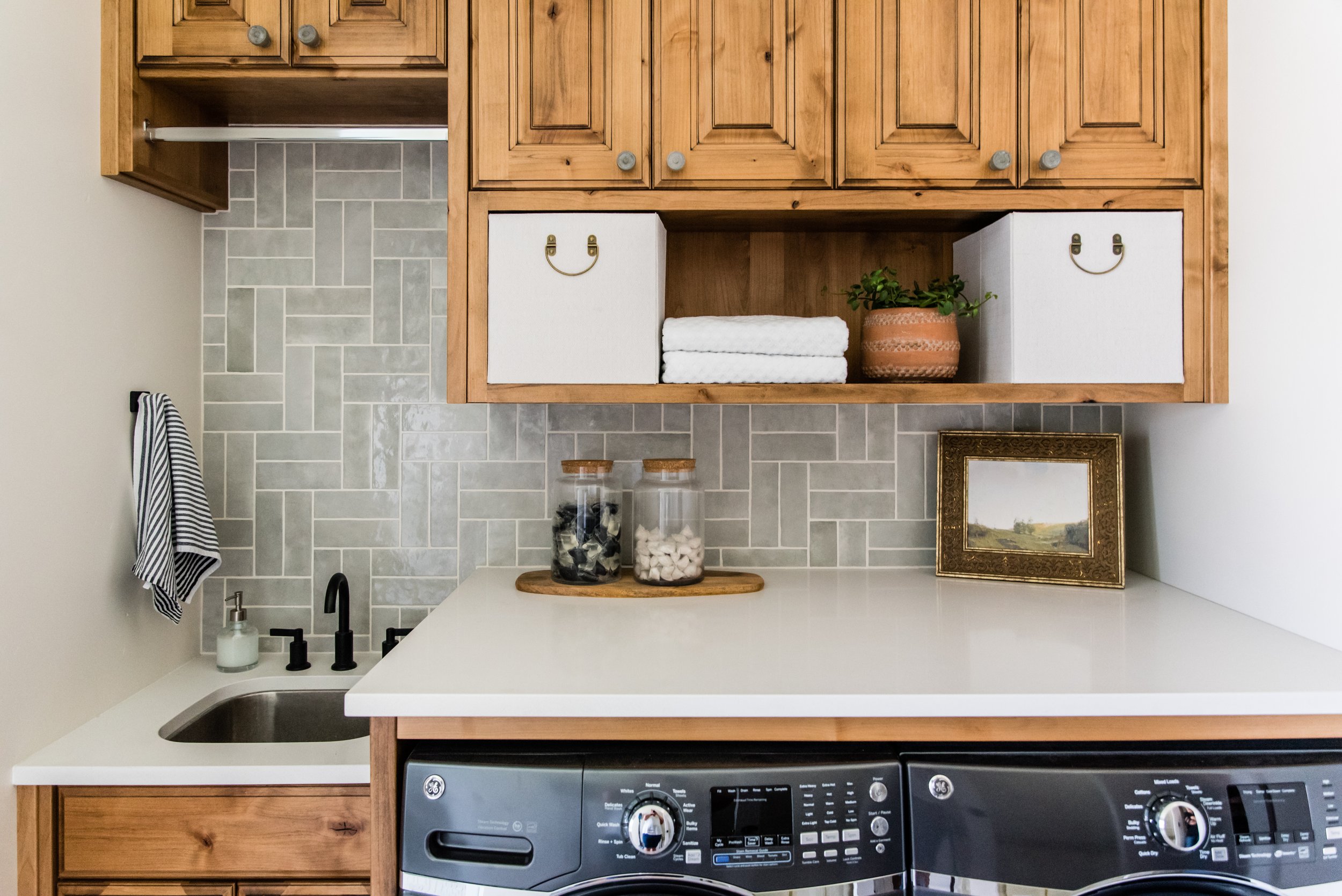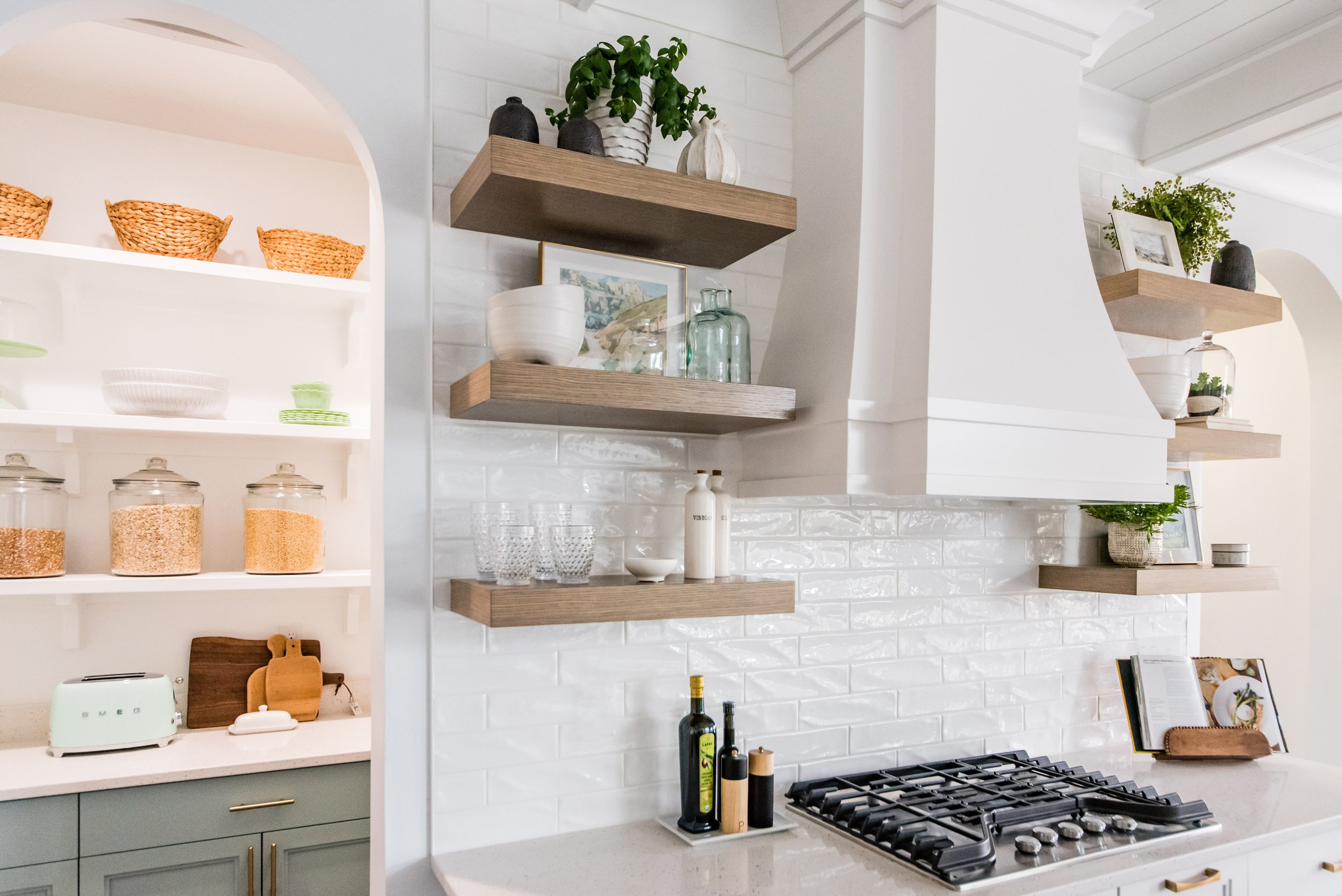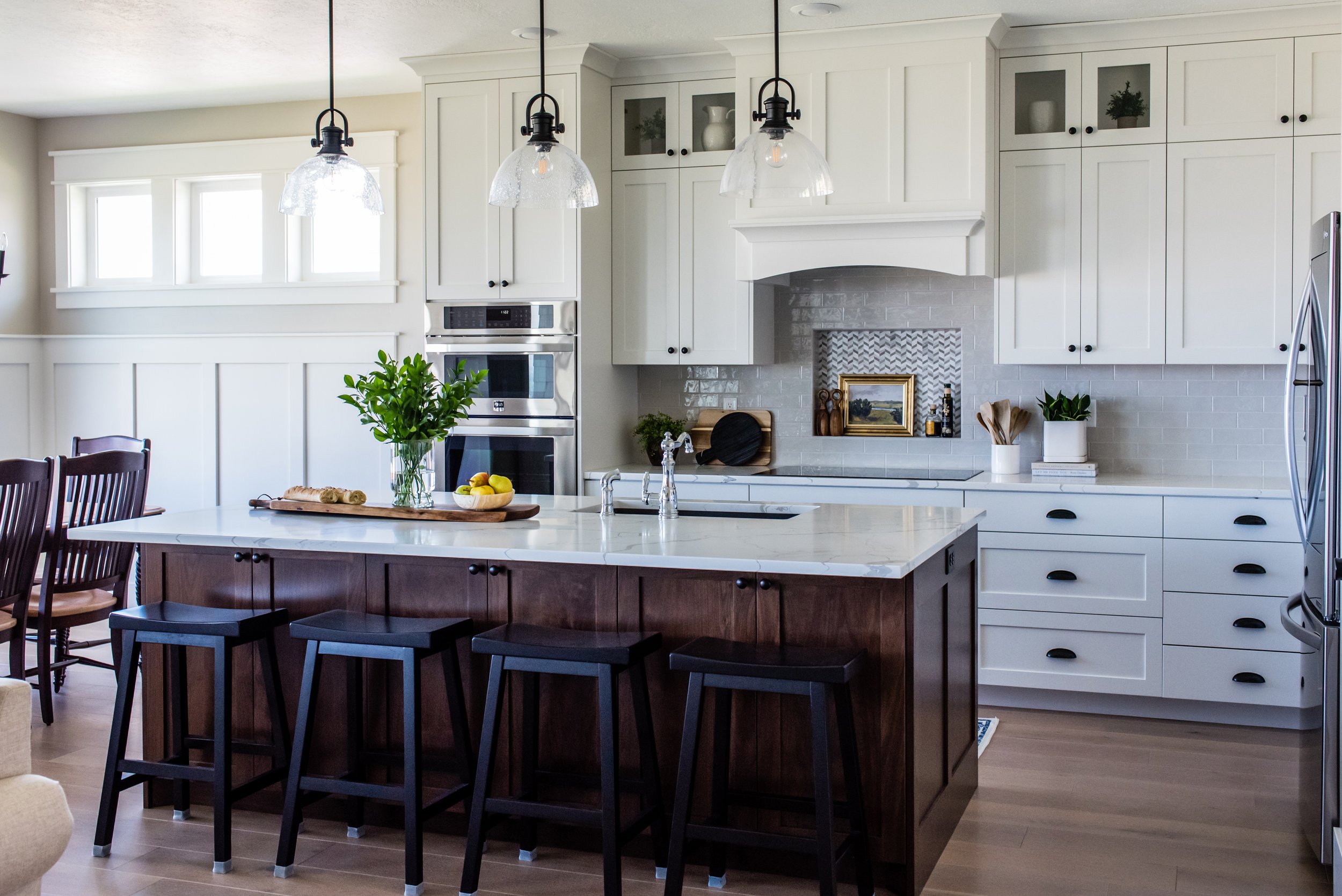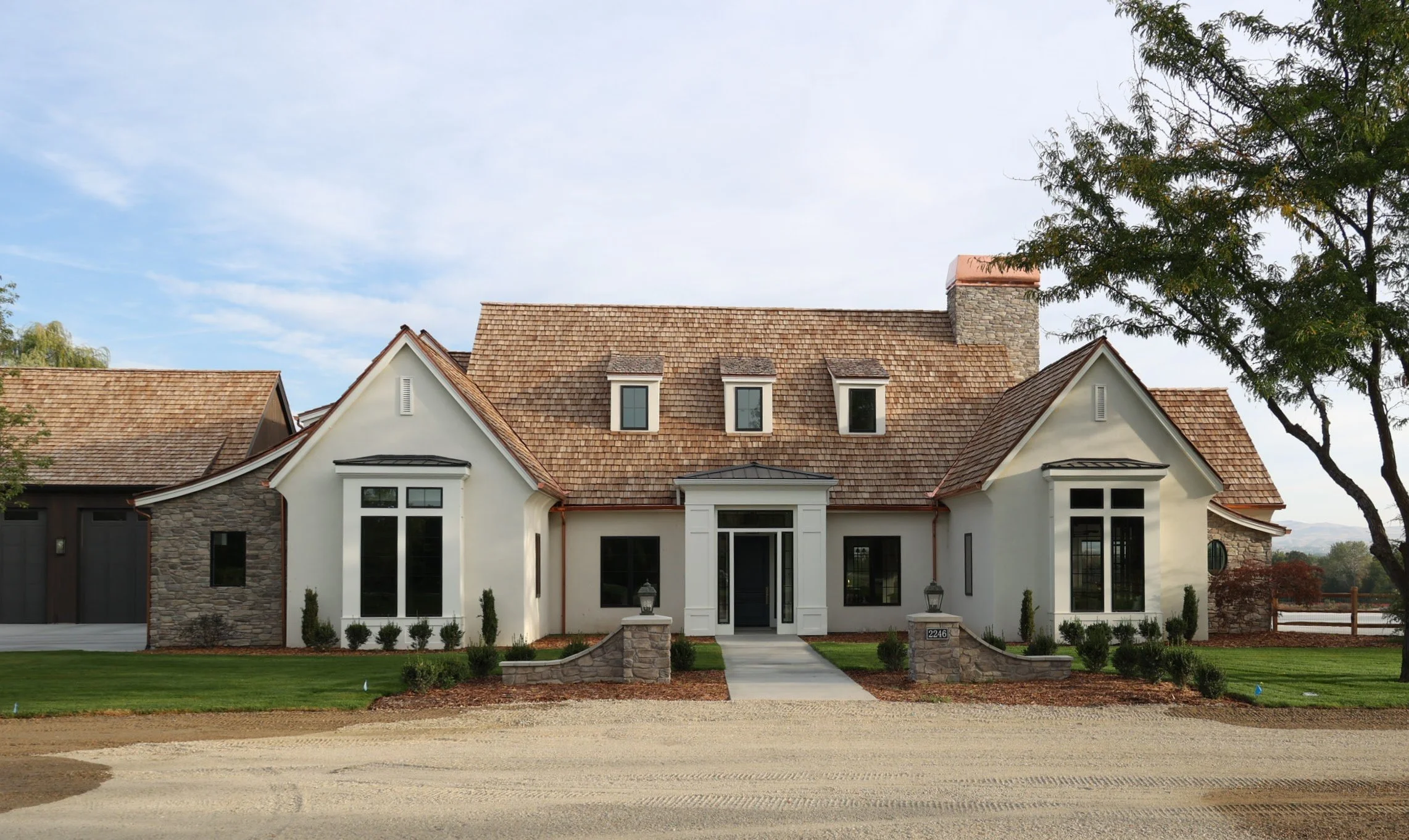Tiles | 12 Steps of Building a Home Series
This is month 8 of our 12-month series on Building a Home! If you have missed any previous blog posts be sure to check out the Liz Powell Design Blog to catch up.
introduction
Today we’re taking a deep dive into all things tile! Tile is an incredibly popular choice for flooring, backsplashes, bathrooms, and more – and for good reason! Tiles are durable and versatile, and bring an extra design element to any room. We’re going to take you through four popular tile materials today, break down the pros and cons of each, and give suggestions for where you should use each type of tile.
marble
PROS
Timeless. Marble has been around for centuries and is an elegant way to add sophistication and beauty to any space.
Durable. Well-maintained marble can withstand nearly anything, making it a long-lasting option for floors or walls.
Resilient. Marble is great for heat-exposed areas like kitchens AND remains cool to the touch even in warm temperatures.
CONS
High Maintenance. You MUST seal marble regularly to protect it from stains and moisture damage.
Scratches Easily. Marble is a relatively soft material compared to other tile options and can show scratches quickly.
Cost. Marble is one of the more expensive home materials you can find, which means it’s often a luxury investment.
WHERE TO USE
Marble tiles look beautiful anywhere, but we think they’re especially lovely in formal entryways, powder bathrooms, or formal dining rooms. Just be sure you’re prepared for the ongoing maintenance required to keep marble tiles looking their best before making the investment.
PORCELAIN
PROS
Versatile. Porcelain tiles come in just about every color, pattern, texture, and even shape you can imagine.
Durable. Porcelain resists stains and scratches really well, making it a great option for high-traffic areas of your home.
Low-Maintenance. Cleaning porcelain is easy and doesn’t require specialized cleaners or sealing like natural stone.
CONS
Cost. Porcelain isn’t quite as expensive as marble, but it is pricier than most ceramic tile options.
Hardiness. Compared to other tile materials porcelain tends to be brittle and harder to cut. A professional is recommended for more complex patterns or designs.
Stays Cold. While this might be a pro to those of us who run hot (hello, it’s me!), porcelain does stay quite cold in cold months or climates. Underfloor heating can add extra warmth, but will also add to the overall cost.
BONUS TIP — If you’re looking to add a little warmth to your tile floors without underfloor heating, consider a rug. Here is a list of our favorite rugs!
WHERE TO USE
Porcelain tiles are a wonderful option for most rooms in the house! We especially like them in the kitchen, bathrooms, and hallways. They are durable, work well in moist environments, and come in many stylish finishes.
CERAMIC
PROS
Affordable. Ceramic is one of the most budget-friendly tile options, which is ideal for a home being built or renovated on a budget.
Easy to Install. Installing ceramic tiles isn’t a very complicated process, which makes it a popular DIY option.
Styles Vary. Like porcelain, ceramic tiles come in many different shapes, colors, sizes, and finishes, so you’re sure to find something that fits your home style.
CONS
Porous. Ceramic tiles are slightly porous, meaning they have little holes that let water in. Regular sealing is required to prevent stains.
Chips Moderately Easily. If a large object drops on ceramic tile, the tile will likely chip or crack. Ceramic isn’t a great option for high-traffic areas.
Limited Durability. Compared to marble or porcelain, ceramic tiles aren’t as durable and may require replacing sooner.
WHERE TO USE
Since ceramic is a more fragile material, it’s better suited for areas with lower traffic. Think of details in a home office, backsplashes, etc. Just be sure to seal the tile regularly to avoid water damage.
GLASS
PROS
Visual Interest. Glass tiles reflect light extremely well, which can be visually stunning. It can help rooms appear larger and brighter.
Versatile. Glass tiles can be just about any color under the sun, allowing for nearly endless creative options.
Stain Resistant. Glass is non-porous and is highly resistant to water damage and stains, meaning it works anywhere damp.
CONS
Fragile. Glass tiles are very delicate, especially compared to natural materials. They can crack or chip easily under impact.
Scratches Easily. All glass can scratch easily and requires proper cleaning. Avoid cleaning glass tiles with abrasive cleaners or cloths.
Challenging Installation. Glass tiles should always be installed by a trained professional to make sure the adhesive sticks well.
WHERE TO USE
Glass is a beautiful tile option that looks best as an accent or backsplash in kitchens and bathrooms. If installed near a large natural light source their reflective surfaces will bring a new level of dimension to the room.

